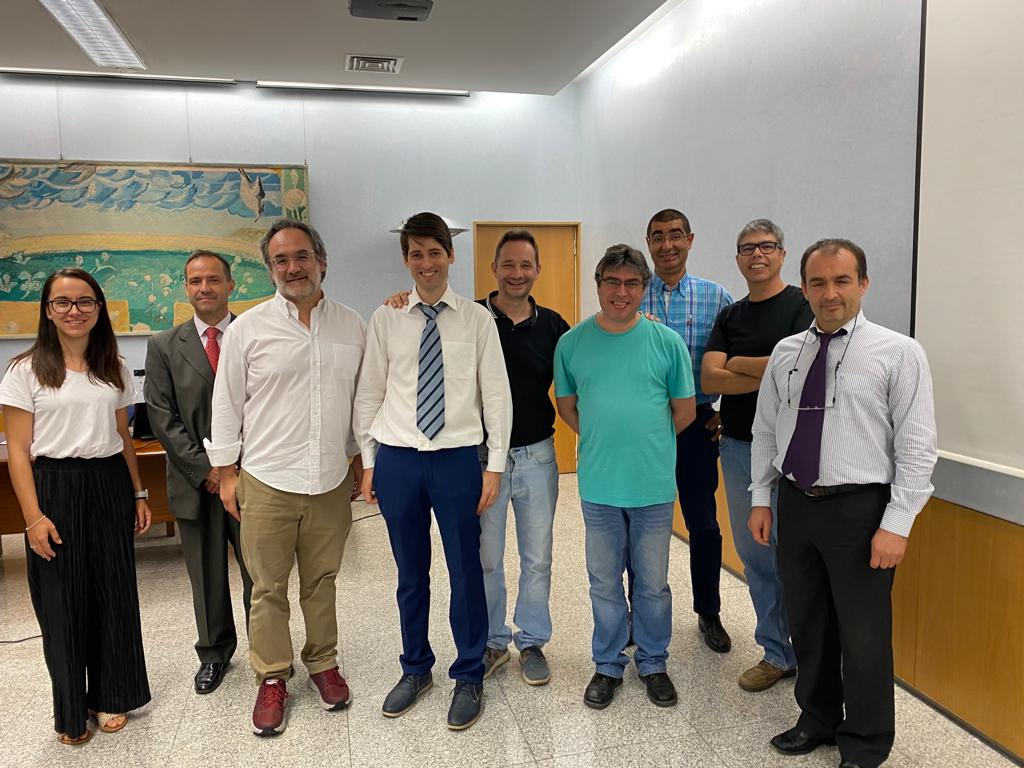Sérgio Gonçalves finaliza o seu Doutoramento
Tema da Tese: ‘New generation of interactive platforms based on novel printed smart materials’
Autor: Sérgio Abílio Pereira Gonçalves
Orientadores: Pedro Sérgio Oliveira Branco; Senentxu Lanceros-Méndez; José Gerardo Vieira Rocha
Data: 25/07/2022
Programa Doutoral: Engenharia Eletrónica e de Computadores
Abstract
The last decade was marked by the computer-paradigm changing with other digital devices suddenly becoming available to the general public, such as tablets and smartphones. A shift in perspective from computer to materials as the centerpiece of digital interaction is leading to a diversification of interaction contexts, objects and applications, recurring to intuitive commands and dynamic content that can proportionate more interesting and satisfying experiences.
In parallel, polymer-based sensors and actuators, and their integration in different substrates or devices is an area of increasing scientific and technological interest, which current state of the art starts to permit the use of smart sensors and actuators embodied within the objects seamlessly. Electronics is no longer a rigid board with plenty of chips. New technological advances and perspectives now turned into printed electronics in polymers, textiles or paper. We are assisting to the actual scaling down of computational power into everyday use objects, a fusion of the computer with the material. Interactivity is being transposed to objects erstwhile inanimate.
In this work strain and deformation sensors and actuators are developed recurring to functional polymer composites with metallic and carbonaceous nanoparticle (NP) inks, leading to capacitive, piezoresistive and piezoelectric effects, envisioning the creation of tangible user interfaces (TUIs). Based on smart polymer substrates such as polyvinylidene fluoride (PVDF) or polyethylene terephthalate (PET), among others, prototypes were prepared using piezoelectric and dielectric technologies. Piezoresistive prototypes were prepared with resistive inks and restive functional polymers. Materials were printed by screen printing, inkjet printing and doctor blade coating. Finally, a case study of the integration of the different materials and technologies developed is presented in a book-form factor.
Keywords: Interactive books, polymer sensors and actuators, printed electronics, smart materials, TUI.




